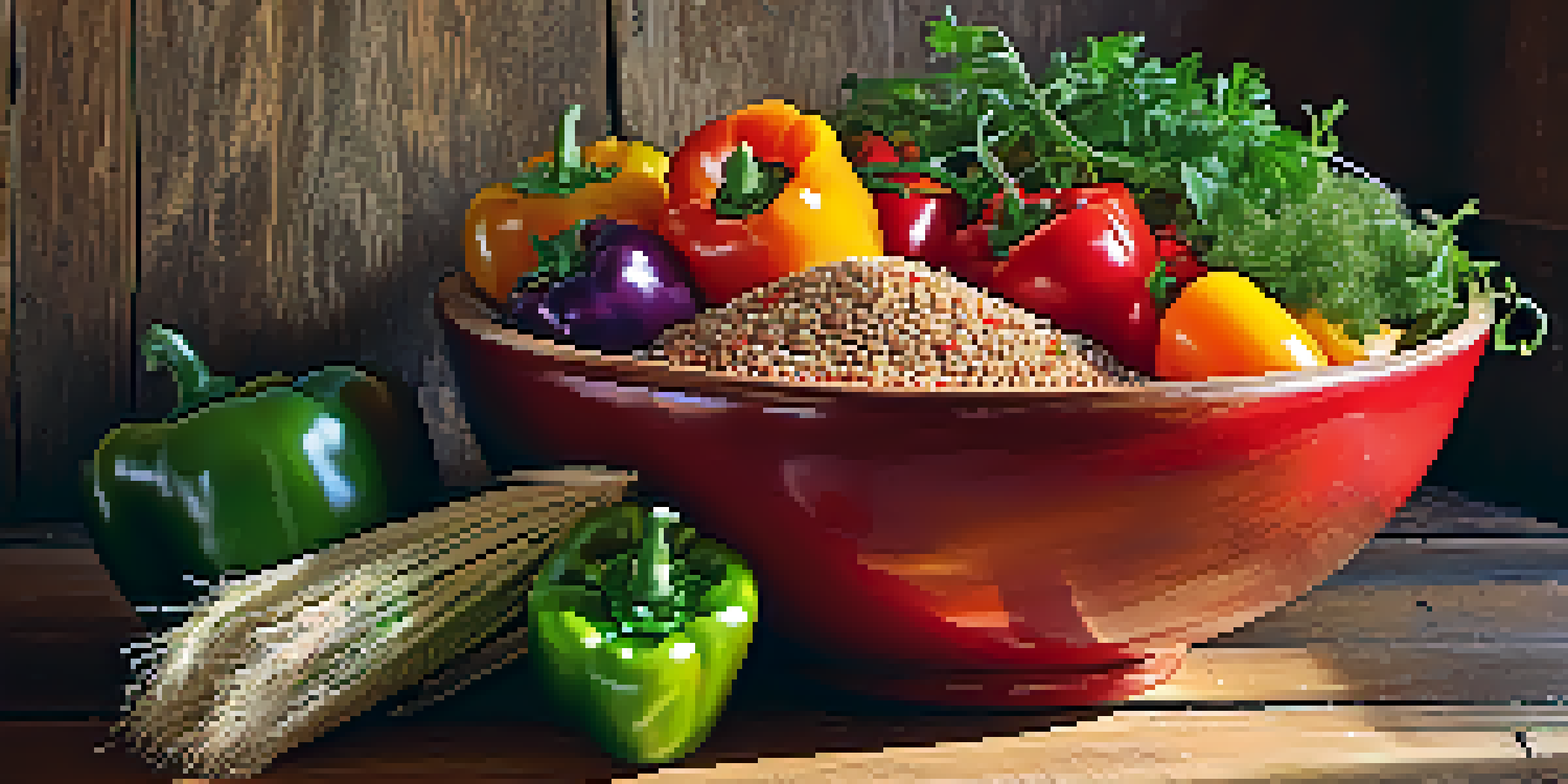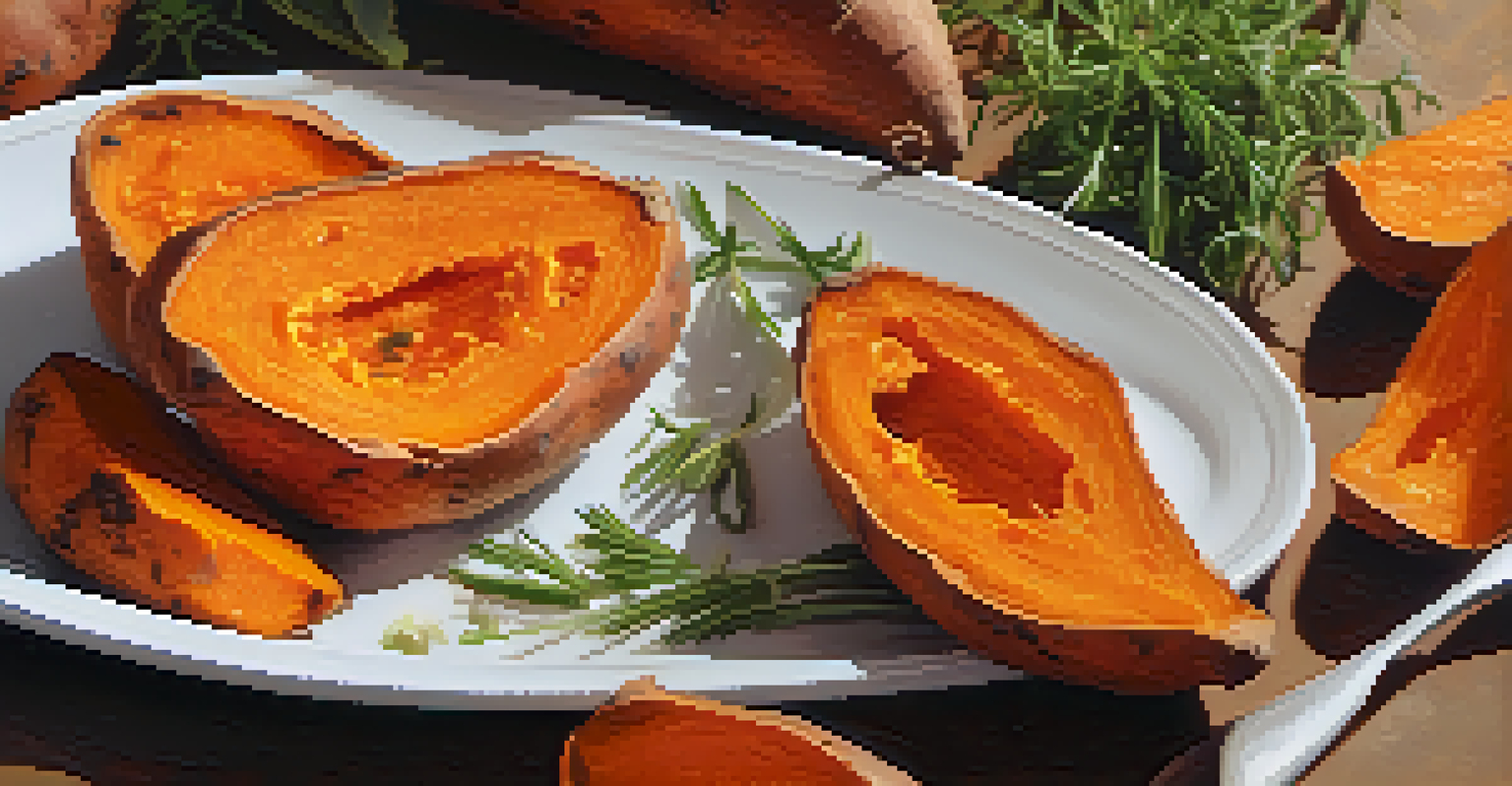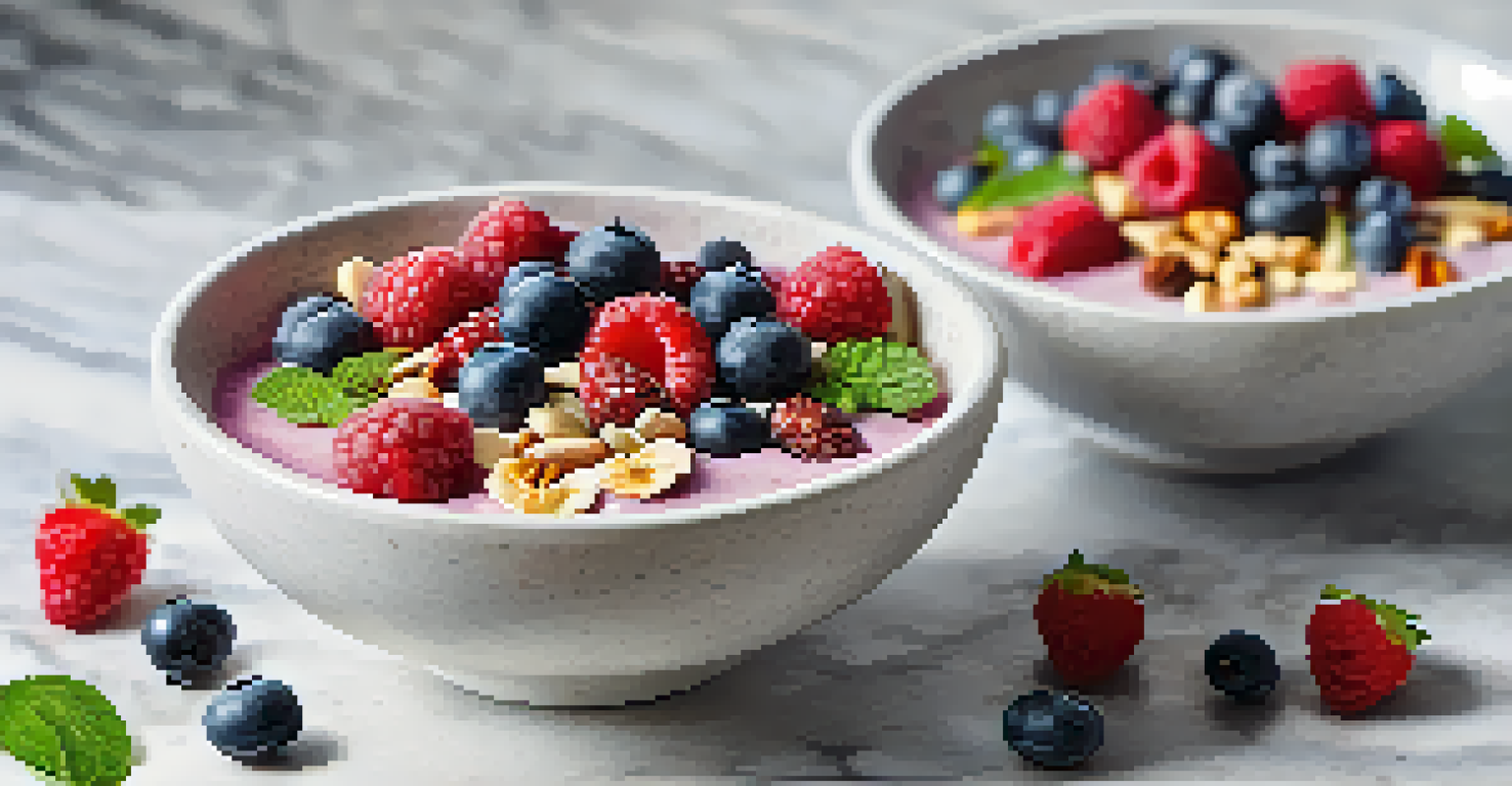Top Plant-Based Foods for Muscle Recovery in Athletes

The Importance of Nutrition for Muscle Recovery
Nutrition plays a crucial role in muscle recovery, especially for athletes. After intense workouts, your muscles need the right nutrients to repair and grow stronger. This is where a balanced diet rich in plant-based foods can make a significant difference.
Let food be thy medicine and medicine be thy food.
Plant-based foods are packed with vitamins, minerals, and antioxidants that help reduce inflammation and promote healing. They offer a unique blend of carbohydrates and proteins that are essential for replenishing energy stores and repairing muscle tissue.
By focusing on these nutrients, athletes can enhance their recovery process and improve overall performance. Understanding the importance of nutrition sets the stage for exploring the best plant-based foods that can aid in this journey.
Quinoa: A Complete Protein Powerhouse
Quinoa is often referred to as a superfood and for good reason. This gluten-free grain is not only rich in protein but also contains all nine essential amino acids, making it a complete protein source. This is especially beneficial for athletes who need to repair and build muscle after rigorous training.

In addition to protein, quinoa is loaded with fiber, magnesium, and iron, which aid in muscle recovery and overall energy levels. Cooking it is simple—just boil it like rice, and you have a nutritious side dish or base for salads and bowls.
Nutrition is Key for Recovery
A balanced diet rich in plant-based foods is essential for athletes to repair muscles and enhance performance after intense workouts.
Incorporating quinoa into your meals can help you feel fuller and more satisfied, ensuring you get the nutrients you need to recover effectively. Plus, its versatility means it can easily fit into various recipes, from breakfast to dinner.
Chickpeas: The Versatile Recovery Snack
Chickpeas, also known as garbanzo beans, are a fantastic plant-based option for muscle recovery. They are high in protein and fiber, which contribute to muscle repair and help maintain energy levels throughout the day. Whether you enjoy them in salads, stews, or as hummus, chickpeas are incredibly versatile.
You are what you eat, so don’t be fast, cheap, easy, or fake.
These little legumes are also rich in vitamins like B6, which is essential for protein metabolism. This means that they not only help in muscle repair but also assist in converting food into energy, making them a great post-workout snack.
So next time you're looking for a quick and healthy recovery option, grab some roasted chickpeas or whip up a batch of hummus. You'll be fueling your body with the nutrients it craves after a tough workout.
Sweet Potatoes: Nature's Energy Booster
Sweet potatoes are a delicious and nutritious choice for athletes focused on recovery. They are rich in complex carbohydrates, which provide a steady source of energy, replenishing glycogen stores that can be depleted after exercise. Their natural sweetness makes them a favorite in many dishes.
Packed with vitamins A and C, sweet potatoes also have anti-inflammatory properties, which can help reduce muscle soreness. Roasting, mashing, or even baking them into fries are just a few ways to enjoy this powerhouse food.
Plant-Based Foods Promote Healing
Foods like quinoa, chickpeas, and berries provide vital nutrients that reduce inflammation and support muscle repair.
Incorporating sweet potatoes into your post-workout meals can help you feel energized and ready for your next training session. Plus, their vibrant color and flavor can make any meal more appealing.
Spinach: A Nutrient-Dense Leafy Green
Spinach is a nutrient-dense leafy green that deserves a spot in every athlete's diet. It's packed with vitamins, minerals, and antioxidants, all of which help combat oxidative stress and inflammation after workouts. The high iron content in spinach also supports muscle function and energy production.
Whether you enjoy it in smoothies, salads, or cooked dishes, spinach is easy to incorporate into your meals. Its mild flavor pairs well with a variety of ingredients, making it a versatile choice for any recipe.
Including spinach in your post-exercise meals can enhance recovery and provide your body with essential nutrients. Remember, a little green can go a long way in supporting your athletic performance!
Berries: Antioxidant-Rich Recovery Heroes
Berries such as blueberries, strawberries, and raspberries are not just delicious; they're also packed with antioxidants that help reduce muscle soreness and inflammation. These tiny fruits are rich in vitamins and minerals, making them a fantastic addition to any athlete's recovery regimen.
Antioxidants play a crucial role in combating oxidative stress caused by intense workouts, which can lead to muscle damage. Enjoying a bowl of mixed berries or adding them to smoothies can provide a refreshing boost to your recovery process.
Long-Term Benefits of Plant Diets
Adopting a plant-based diet not only aids immediate recovery but also contributes to overall health and improved athletic performance.
Their natural sweetness and vibrant colors make them a delightful treat, and the health benefits they bring are just the cherry on top. Incorporating berries into your diet can be a simple yet effective way to support your body's recovery.
Nuts and Seeds: Healthy Fats for Recovery
Nuts and seeds are excellent sources of healthy fats, proteins, and fiber, all of which play a vital role in muscle recovery. Almonds, walnuts, chia seeds, and flaxseeds are packed with omega-3 fatty acids, which help reduce inflammation and support overall health.
In addition to their anti-inflammatory properties, nuts and seeds provide a convenient snack option for on-the-go athletes. Whether you enjoy them as a topping on yogurt, as part of a homemade trail mix, or simply by the handful, they are easy to incorporate into your daily routine.

Adding a variety of nuts and seeds to your diet can help ensure you're getting a well-rounded intake of nutrients that support muscle recovery. Plus, their satisfying crunch and flavor can make healthy eating more enjoyable.
The Benefits of Plant-Based Recovery Foods
Choosing plant-based foods for muscle recovery comes with numerous benefits. Not only do they provide essential nutrients, but they also promote a healthier lifestyle overall. A diet rich in plants can lead to reduced inflammation, better digestion, and improved energy levels.
Moreover, plant-based foods are often lower in saturated fats and cholesterol, contributing to heart health. This is particularly important for athletes, as a healthy cardiovascular system enhances performance and recovery.
By focusing on these plant-based recovery foods, athletes can fuel their bodies in a way that supports both immediate recovery and long-term health. Embracing this approach can lead to enhanced performance and a greater sense of well-being.